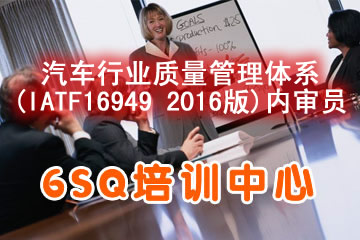Rice speech
SECRETARY RICE:
Good afternoon. It's been great to be back in Beijing and I have appreciated the opportunity to meet with China's leaders, but also to attend a very moving church service yesterday evening and to spend some very nice quality time with a group of students out at Beijing University, several of whom noted that the universities have had a very good relationship with Stanford University, and so that was a very pleasant experience.
U.S.-China relations have developed remarkably and in ways that would have been thought unthinkable a few years ago. Today we are cooperating in tangible ways on issues ranging from aid to Afghanistan and Iraq to actions in the global war on terror to concerns in fighting HIV-AIDS.
During our meetings here my Chinese hosts and I agreed that expanded cooperation between the United States and China is essential to the interests of both countries, particularly as China is in a stage of major transformation. I extended the President's greetings to President Hu and noted that the President is looking forward to welcoming him to the United States later this year.
We discussed North Korea and the six-party talks and reiterated our joint commitment to a diplomatic resolution of this nuclear issue. We talked about the important role of all of the members of the six-party talks, but China, in particular, has an important role to play in convincing North Korea that the best way for it to seek improved relations with the rest of the world is to return to the negotiating table and end its nuclear ambitions.
I raised with my interlocutors the issues of human rights and religious freedom, talked about the possibilities for increased participation in the political process and the extension of personal freedoms for Chinese citizens and how essential that is to the success of countries in the 21st century.
Of course we talked about Taiwan and Cross-Strait differences and the importance of neither side doing anything to – unilaterally that would increase tensions across the Cross-Strait.
I reiterated that the United States does, in fact, have a "One China" policy that has been clear and consistent, a policy that is based on three communiqués but that also recognizes American obligations under the Taiwan Relations Act.
As for the anti-secession legislation, I said to my Chinese hosts that we would hope that this would be something that having, we believe, made dialogue across the Cross-Straits perhaps more difficult, that they would take steps to reduce tensions now with Taiwan.
As the United States works with a rapidly developing China we want to do so honestly and on the basis of global standards. These standards are important in areas like human rights and nonproliferation and of course they are important in trade and economic affairs. On that basis and on the basis of shared interests we look forward to an expanding and deepening relationship with China.
国务卿赖斯:
下午好。我很高兴能再次来到北京,并很重视同中国领导人会晤的机会。昨天晚上我还参加了一次非常令人感动的教堂礼拜仪式,并在北京大学同学生们共度了一段很有意义的时光。一些学生说北大同斯坦福大学一直保持着非常好的关系,因此,同他们见面非常愉快。
美中关系有了巨大发展,发展程度是几年前不可想象的。今天,我们正在各种问题上进行实质性合作,合作范围从援助阿富汗和伊拉克直到在全球反恐之战中采取行动,以及对防治艾滋病及其病毒予以关注。
在我同中国领导人的会谈中,宾主双方一致认为扩大美国与中国之间的合作对于两国利益至关重要,特别是当中国处于一个重大过渡阶段时。我向胡主席转达了(布什)总统的问候,并转告他总统期待着今年晚些时候在美国迎接他的到来。
我们讨论了北韩问题及六方会谈,并重申了两国通过外交方式解决这个核问题的共同承诺。我们谈到了参加六方会谈的所有各方的重要作用,特别是中国的重要作用,以帮助北韩认识到寻求同世界其他国家改善关系的最佳途径是回到谈判桌前并放弃其核野心。
我向中国领导人提出了人权及宗教自由问题,谈到了增进中国公民对政治进程的参与并扩大他们的个人自由的可能性,以及这对各国在21世纪取得成功是多么关键。
我们当然也谈到了台湾问题和海峡两岸的分歧,以及双方都不单方面采取任何可能加剧海峡两岸的紧张局势的行动之重要性。
我还重申,美国确实推行一项明确、一致的"一个中国"政策,这项政策建立在三个联合公报的基础上,但同时也承认美国根据《台湾关系法》承担的义务。
关于反分裂立法,我对中国领导人说,我们认为这项立法可能使海峡两岸的对话变得更加困难,他们现在应当采取措施缓解同台湾的紧张关系。
美国在同一个迅猛发展的中国合作时,希望坦诚地进行合作并以国际标准为基础。这些标准在人权和防扩散领域具有重要意义,当然在贸易和经济事务上也具有重要意义。基于上述基础及共同利益,我们期待着扩大并加深同中国的关系。
{V{V{V
Good afternoon. It's been great to be back in Beijing and I have appreciated the opportunity to meet with China's leaders, but also to attend a very moving church service yesterday evening and to spend some very nice quality time with a group of students out at Beijing University, several of whom noted that the universities have had a very good relationship with Stanford University, and so that was a very pleasant experience.
U.S.-China relations have developed remarkably and in ways that would have been thought unthinkable a few years ago. Today we are cooperating in tangible ways on issues ranging from aid to Afghanistan and Iraq to actions in the global war on terror to concerns in fighting HIV-AIDS.
During our meetings here my Chinese hosts and I agreed that expanded cooperation between the United States and China is essential to the interests of both countries, particularly as China is in a stage of major transformation. I extended the President's greetings to President Hu and noted that the President is looking forward to welcoming him to the United States later this year.
We discussed North Korea and the six-party talks and reiterated our joint commitment to a diplomatic resolution of this nuclear issue. We talked about the important role of all of the members of the six-party talks, but China, in particular, has an important role to play in convincing North Korea that the best way for it to seek improved relations with the rest of the world is to return to the negotiating table and end its nuclear ambitions.
I raised with my interlocutors the issues of human rights and religious freedom, talked about the possibilities for increased participation in the political process and the extension of personal freedoms for Chinese citizens and how essential that is to the success of countries in the 21st century.
Of course we talked about Taiwan and Cross-Strait differences and the importance of neither side doing anything to – unilaterally that would increase tensions across the Cross-Strait.
I reiterated that the United States does, in fact, have a "One China" policy that has been clear and consistent, a policy that is based on three communiqués but that also recognizes American obligations under the Taiwan Relations Act.
As for the anti-secession legislation, I said to my Chinese hosts that we would hope that this would be something that having, we believe, made dialogue across the Cross-Straits perhaps more difficult, that they would take steps to reduce tensions now with Taiwan.
As the United States works with a rapidly developing China we want to do so honestly and on the basis of global standards. These standards are important in areas like human rights and nonproliferation and of course they are important in trade and economic affairs. On that basis and on the basis of shared interests we look forward to an expanding and deepening relationship with China.
国务卿赖斯:
下午好。我很高兴能再次来到北京,并很重视同中国领导人会晤的机会。昨天晚上我还参加了一次非常令人感动的教堂礼拜仪式,并在北京大学同学生们共度了一段很有意义的时光。一些学生说北大同斯坦福大学一直保持着非常好的关系,因此,同他们见面非常愉快。
美中关系有了巨大发展,发展程度是几年前不可想象的。今天,我们正在各种问题上进行实质性合作,合作范围从援助阿富汗和伊拉克直到在全球反恐之战中采取行动,以及对防治艾滋病及其病毒予以关注。
在我同中国领导人的会谈中,宾主双方一致认为扩大美国与中国之间的合作对于两国利益至关重要,特别是当中国处于一个重大过渡阶段时。我向胡主席转达了(布什)总统的问候,并转告他总统期待着今年晚些时候在美国迎接他的到来。
我们讨论了北韩问题及六方会谈,并重申了两国通过外交方式解决这个核问题的共同承诺。我们谈到了参加六方会谈的所有各方的重要作用,特别是中国的重要作用,以帮助北韩认识到寻求同世界其他国家改善关系的最佳途径是回到谈判桌前并放弃其核野心。
我向中国领导人提出了人权及宗教自由问题,谈到了增进中国公民对政治进程的参与并扩大他们的个人自由的可能性,以及这对各国在21世纪取得成功是多么关键。
我们当然也谈到了台湾问题和海峡两岸的分歧,以及双方都不单方面采取任何可能加剧海峡两岸的紧张局势的行动之重要性。
我还重申,美国确实推行一项明确、一致的"一个中国"政策,这项政策建立在三个联合公报的基础上,但同时也承认美国根据《台湾关系法》承担的义务。
关于反分裂立法,我对中国领导人说,我们认为这项立法可能使海峡两岸的对话变得更加困难,他们现在应当采取措施缓解同台湾的紧张关系。
美国在同一个迅猛发展的中国合作时,希望坦诚地进行合作并以国际标准为基础。这些标准在人权和防扩散领域具有重要意义,当然在贸易和经济事务上也具有重要意义。基于上述基础及共同利益,我们期待着扩大并加深同中国的关系。
{V{V{V
没有找到相关结果
已邀请:





1 个回复
深水中鱼 (威望:8) (广东 深圳) 电子制造 经理
赞同来自: